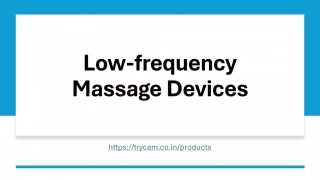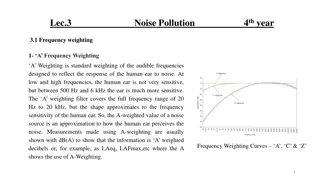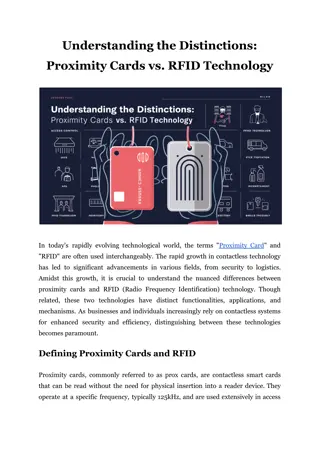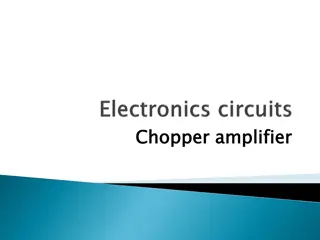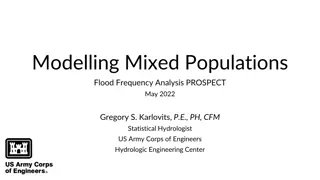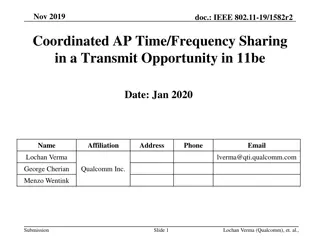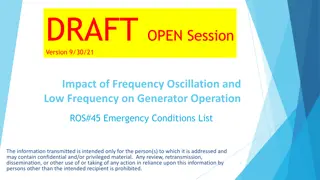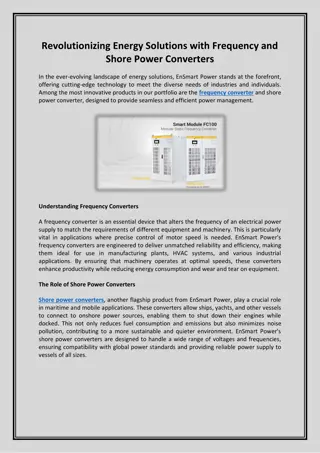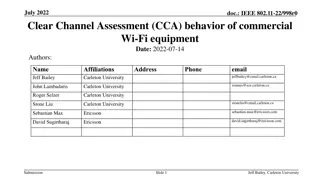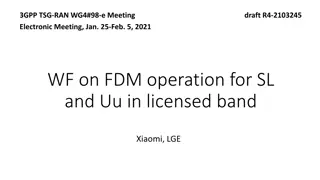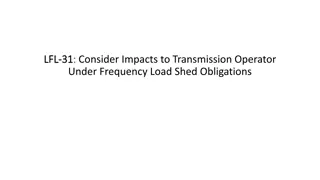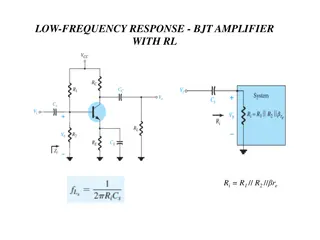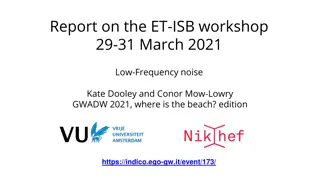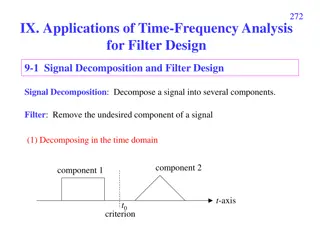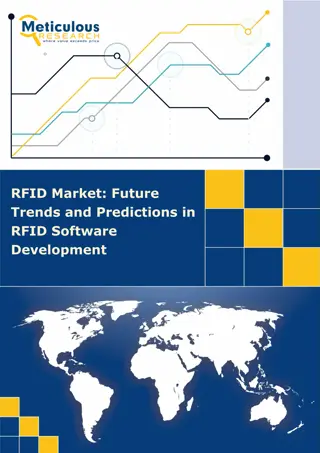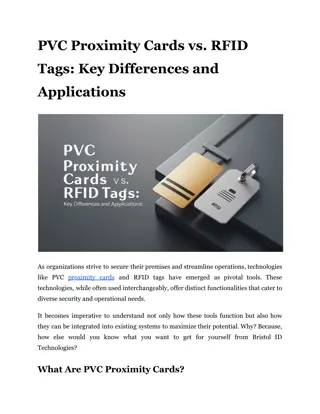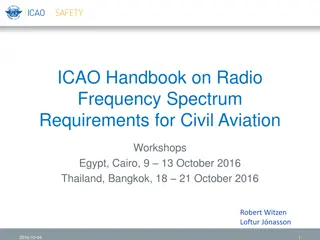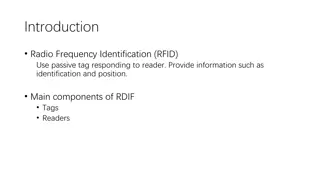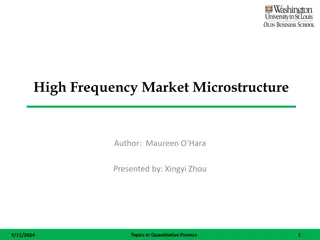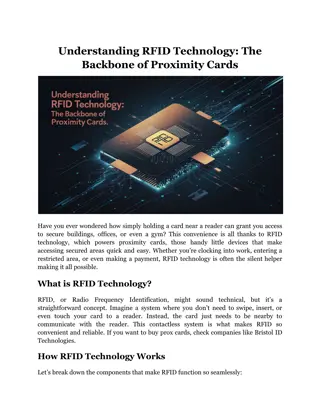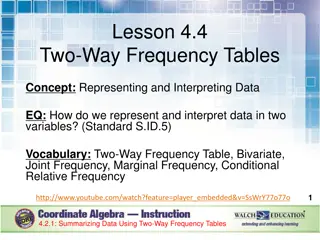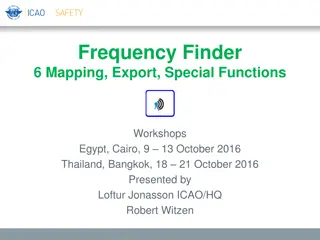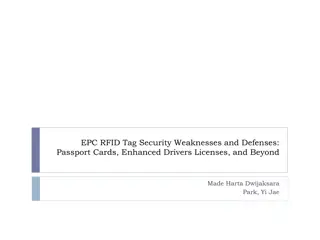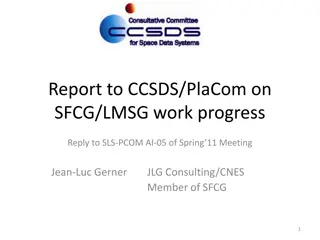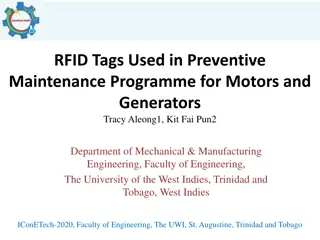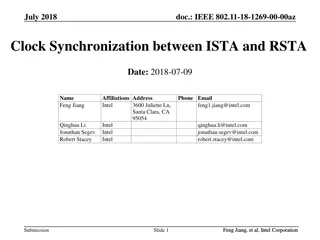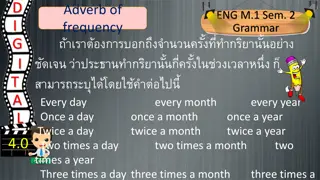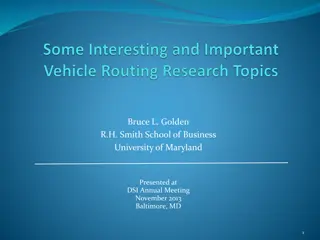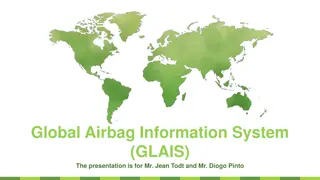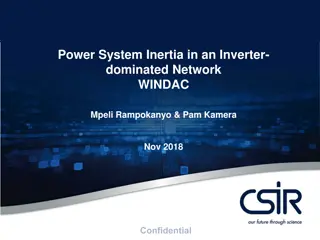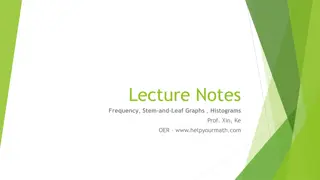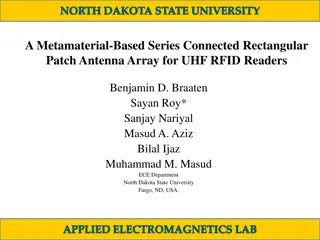Low-frequency Massage Devices
Low-frequency Massage Devices\nUnwind and rejuvenate with Trycam's cutting-edge low-frequency massage devices, designed to bring the benefits of professional massages to the comfort of your own space. Our innovative technology delivers a soothing and effective massage experience, promoting relaxatio
3 views • 5 slides
Understanding Frequency Weighting in Noise Pollution Measurement
Frequency weighting is essential in noise pollution measurement to reflect how the human ear perceives noise. The A, C, and Z weightings are commonly used to represent different frequency responses. A-weighting covers the audible frequencies where the human ear is most sensitive, while C-weighting i
2 views • 7 slides
Racking Inspection Frequency & Cemetery Inspections
With so much health and safety law dependent on inspections, defining it legally can literally be a matter of life and death.\n\nAn enormous part of warehouse safety is racking inspection frequency, which HSE spells out in HSG76 \u2014 Warehousing and Storage: A Guide to Health and Safety.\n\n\/\/se
4 views • 3 slides
Adverbs and Expressions of Frequency in English
Reviewing adverbs and expressions of frequency in English language for oral and written text production. Focus on types of relationships and grammar. Activities to analyze sentences and frequency indicators. Overview of common adverbs and expressions used to express regularity.
4 views • 20 slides
Load Frequency Control in Power Systems
Electric power systems require Load Frequency Control (LFC) to maintain a uniform frequency, distribute load among generators, and manage tie-line interchange schedules. LFC detects frequency changes, generates real power commands to adjust torque, and ensures stability within specified limits. Reas
8 views • 38 slides
Understanding the Distinctions_ Proximity Cards vs. RFID Technology
Confused about proximity cards and RFID? This guide breaks down the key differences to help you choose the best technology for your needs.
5 views • 4 slides
Understanding Chopper Amplifiers: Applications and Benefits
A chopper amplifier is an electronic circuit methodology used to minimize signals, DC offsets, noise, and low-frequency circuit conditions in operational amplifiers. Chopper stabilized amplifiers employ modulation to reduce noise, while chopper amplifiers find applications in battery chargers, elect
0 views • 7 slides
Understanding Mixed Populations in Flood Frequency Analysis
In this presentation by Gregory S. Karlovits, P.E., PH, CFM, a statistical hydrologist from the US Army Corps of Engineers, the focus is on modelling mixed populations in flood frequency analysis. The key topics include revisiting the IID assumption, identifying mixed populations, and building model
0 views • 38 slides
Coordinated AP Time/Frequency Sharing in IEEE 802.11be
The document discusses Coordinated AP (CAP) Time/Frequency Sharing in Transmit Opportunity in IEEE 802.11be, focusing on Frequency and Time resource sharing between multiple APs in close proximity. It introduces concepts like CAP OFDMA and CAP TDMA, outlining the benefits in terms of latency improve
0 views • 15 slides
Impact of Frequency Oscillation on Generator Operation: Emergency Conditions Analysis
Analyzing the impact of frequency oscillation and low frequency on generator operation during emergency conditions. Investigating how lower frequency affects units' ability to respond to deviations, system stability, and load shedding processes. Examining system responses during Energy Emergency Ale
0 views • 31 slides
Revolutionizing Energy Solutions with Frequency and Shore Power Converters
Enhance your power management with EnSmart Power\u2019s advanced frequency converter. Designed to meet diverse industrial needs, our frequency converters provide precise control over motor speeds, ensuring optimal performance and energy efficiency. I
2 views • 2 slides
Clear Channel Assessment (CCA) Behavior of Commercial Wi-Fi Equipment
This document, dated July 2022, delves into the Clear Channel Assessment (CCA) behavior of commercial Wi-Fi equipment in response to Narrowband Frequency Hopping (NB FH) signals. It explores the regulatory framework around license-exempt frequency bands in the USA and Europe, highlighting the specif
0 views • 22 slides
Discussion on FDM Operation for SL and Uu in Licensed Band at 3GPP TSG-RAN WG4#98-e Meeting
The 3GPP TSG-RAN WG4#98-e meeting discussed introducing Frequency Division Multiplexing (FDM) operation for Uplink (UL) and Secondary Link (SL) in licensed bands. Topics included frequency separation, power control, RF architecture, and intra-band Carrier Aggregation (CA). Options were considered fo
0 views • 10 slides
Understanding Transmission Operator Obligations in Under-Frequency Load Shedding
ERCOT Compliance ensures that Transmission System Operators (TSOs) and Distribution System Operators (DSOs) have automatic under-frequency load shedding circuits in place to provide load relief during under-frequency events. The TSOs are required to shed a specific percentage of their connected load
0 views • 6 slides
Coordinated AP Time/Frequency Sharing in IEEE 802.11be
The document discusses the concept of Coordinated AP (CAP) Time/Frequency Sharing within a Transmit Opportunity (TXOP) in the IEEE 802.11be standard. It explains the procedures of Frequency and Time resource sharing, highlighting the benefits such as latency improvement and throughput fairness. Deta
0 views • 16 slides
Analysis of Low-Frequency Response in BJT and FET Amplifiers
This analysis delves into the low-frequency response of BJT and FET amplifiers, examining the impact of various components such as resistors and capacitors on the cutoff frequencies. Detailed examples illustrate the calculation process for determining these frequencies based on specific parameters.
0 views • 18 slides
Insights from ET-ISB Workshop on Low-Frequency Noise and GWADW 2021
The ET Instrument Science Board held a workshop focusing on addressing key challenges related to low-frequency noise in gravitational wave detectors. Experts discussed topics such as mirror temperature, dealing with low-frequency noise realities, and facility limits. The workshop highlighted the sig
0 views • 13 slides
Applications of Time-Frequency Analysis for Filter Design
Signal decomposition and filter design techniques are explored using time-frequency analysis. Signals can be decomposed in both time and frequency domains to extract desired components or remove noise. Various transform methods like the Fourier transform and fractional Fourier transform are employed
1 views • 35 slides
RFID Market: The Role of AI Integration in Enhancing RFID Capabilities
RFID Market by Component (Hardware (Printers, Antenna, Readers, Labels, Card, Tags, Implant), Software), Frequency (Ultra-high Frequency), Type (Active, Passive), End-user (Transportation & Logistics, Retail), and Geography \u2014 Global Forecasts to
0 views • 3 slides
PVC Proximity Cards vs. RFID Tags_ Key Differences and Applications
Discover the differences between PVC proximity cards and RFID tags. Learn their unique applications in security systems.
2 views • 6 slides
ICAO Handbook on Radio Frequency Spectrum Requirements for Civil Aviation Workshops
This handbook provides insights into spectrum requirements for civil aviation workshops conducted in Egypt and Thailand in October 2016. It covers spectrum strategy, frequency management, spectrum overview for aviation, and frequency assignment planning to support the application of SARPs in Annex 1
0 views • 10 slides
Comprehensive Overview of RFID Technology and Challenges
Radio Frequency Identification (RFID) technology utilizes passive tags to provide identification and positioning data. The main components of RFID tags and readers are crucial for efficient operation. However, the technology faces challenges such as ambiguous phase cycles, self-jamming, bandwidth li
0 views • 11 slides
High Frequency Market Microstructure - A Comprehensive Overview
Delve into the intricate world of high-frequency market microstructure with a detailed exploration of how traders operate, market structures, regulatory influences, and the evolution of trading platforms. Uncover the birth of High-Frequency Trading (HFT), the strategies employed by high-frequency tr
0 views • 12 slides
Understanding RFID Technology_ The Backbone of Proximity Cards
Discover how RFID technology powers proximity cards, making access control systems smarter and more secure.
1 views • 5 slides
Understanding Two-Way Frequency Tables in Data Analysis
Explore the concept of representing and interpreting data in two variables using two-way frequency tables. Learn about joint frequency, marginal frequency, and conditional relative frequency through a practical example involving gender and nail services. Discover how to target specific audiences bas
0 views • 15 slides
Frequency Finder 6 Mapping Workshops Overview
Explore the Frequency Finder 6 Mapping, Export, and Special Functions workshops held in Egypt and Thailand in October 2016. The workshops cover topics such as mapping station coverage, exporting data to different formats, accessing historical frequency assignment records, and ensuring data integrity
0 views • 7 slides
EPC RFID Tag Security Weaknesses and Defenses: Passport Cards, Enhanced Driver's Licenses, and Beyond
Explore the vulnerabilities in EPC RFID tag security related to passport cards, enhanced driver's licenses (EDLs), and more. Learn about cloning risks, defensive strategies, and experimental evaluations of security measures for these identification documents.
0 views • 22 slides
Progress Report on Lunar-Mars Spectrum Group Work within SFCG
The Lunar-Mars Spectrum Group (LMSG) met to review important input documents related to lunar communications, including compatibility studies, frequency considerations, and frequency assignment guidelines. The group identified the need for further work to refine proposed reports and agreed on new ac
0 views • 17 slides
Implementing RFID Tags in Preventive Maintenance for Motors and Generators
Condition monitoring data can be leveraged to establish preventive maintenance programs for electrical rotating units like motors and generators. Integrating RFID sensor tags allows for a condition-based monitoring program, enhancing equipment performance analysis. Learn about the benefits of preven
0 views • 19 slides
IEEE 802.11-18-1269-00-00az Clock Synchronization Investigation
In July 2018, a document was presented by Feng Jiang et al. from Intel Corporation focusing on clock synchronization between ISTA and RSTA in IEEE 802.11-18-1269-00-00az standard. The document delves into the impact of sampling clock errors on range estimation, carrier frequency synchronization in 1
0 views • 10 slides
Efficient Animal Tracking with RFID Technology
Animal tracking using RFID technology is essential for locating critical animals and ensuring proper identification, management, and care in farming organizations. RFID enables automatic identification and data collection, reducing errors and manipulation in data collection and handling. This system
0 views • 16 slides
Railway Wagon/Coach Tracking Solution Overview
This solution involves RFID technology to track railway wagons and coaches in real-time, ensuring operational efficiency and security. RFID tags are placed on each wagon or coach, which are read by RFID readers installed along the railway tracks. Any mismatch in data triggers alerts such as hooter a
0 views • 10 slides
Understanding Adverbs of Frequency in English Language Studies
Explore the usage of adverbs of frequency such as "every day," "twice a month," and "once a week" in English grammar through exercises and examples. Enhance your understanding of how to construct sentences using present simple tense to describe regular activities. Practice placing adverbs in sentenc
0 views • 53 slides
Helium MP3 Player Project Overview
This project aims to create a standalone MP3 player with internet connectivity and graphic equalization, incorporating innovative algorithms to personalize user listening experiences based on preferences, time of day, weather, and new songs. The primary device will decode audio files, adjust volume
0 views • 35 slides
Optimizing Vehicle Routing with RFID Technology
Vehicle routing problems, specifically the CETSP over a street network, have evolved with RFID technology. This study explores the implementation of RouteSmart and heuristic approaches to minimize travel distance and time. Results show significant improvements in efficiency with potential future enh
0 views • 30 slides
Global Airbag Information System (GLAIS) Overview for Mr. Jean Todt and Mr. Diogo Pinto
This presentation introduces the Global Airbag Information System (GLAIS), detailing its worldwide operations, designed to save lives of vehicle occupants. Core components include RFID labels, testing devices, data protection, and control. The process involves RFID label production, data encryption,
0 views • 18 slides
Understanding Power System Inertia in Inverter-Dominated Networks
This study explores the impact of high levels of instantaneous inverter-based renewable energy penetration on power system inertia. It delves into fundamental concepts of energy balance, frequency control, load/frequency characteristics, and the importance of system inertia in maintaining grid stabi
0 views • 20 slides
Understanding Frequency, Stem-and-Leaf Graphs, and Histograms in Data Analysis
Frequency, relative frequency, and cumulative relative frequency are explained with examples. Stem-and-leaf graphs help in organizing small data sets, while histograms display data with continuous variables. An example with heights of male soccer players demonstrates constructing histograms. Calcula
0 views • 11 slides
Effective Regulation of Active Power in Renewable Energy Sources
The balance between generation and load is crucial in power systems operation. Various control levels ensure this balance, from frequency control to power station planning. DER units may lack control means, but specific configurations allow for frequency and voltage control. Performance indicators a
0 views • 51 slides
Metamaterial-Based Series Connected Rectangular Patch Antenna Array for UHF RFID Readers
The metamaterial-based UHF RFID reader antenna array comprises features like rectangular patches, inter-digital capacitors, tuning stub, and a series fed array. The prototype dimensions and substrate details are provided along with resonant frequency observations. Test results include S-parameters o
0 views • 15 slides
